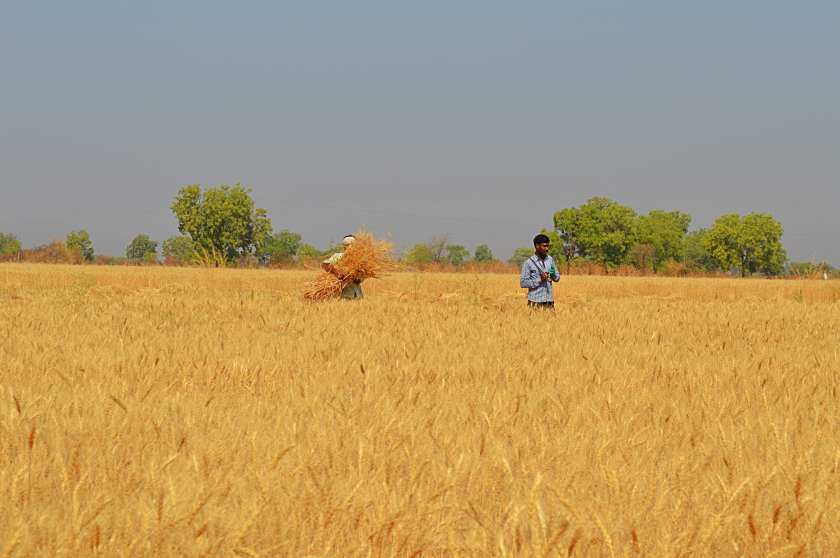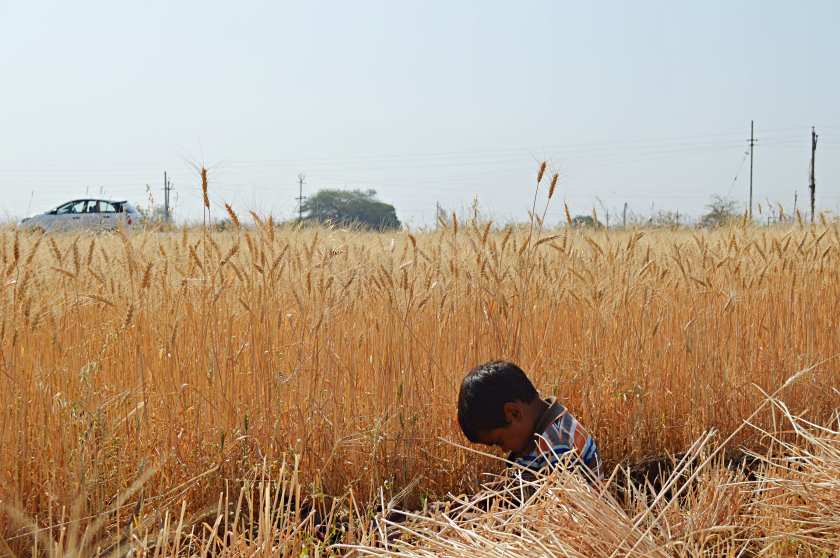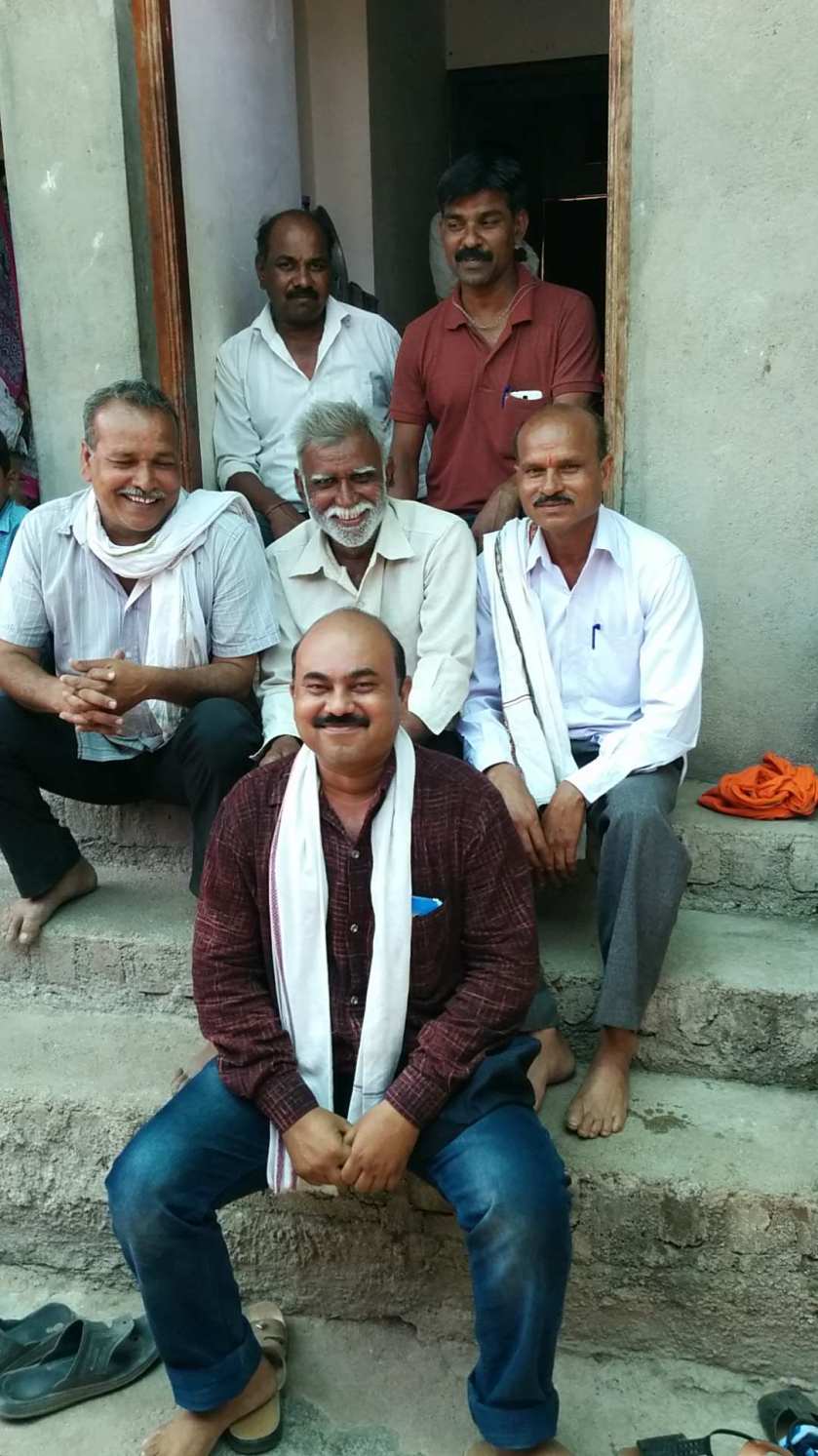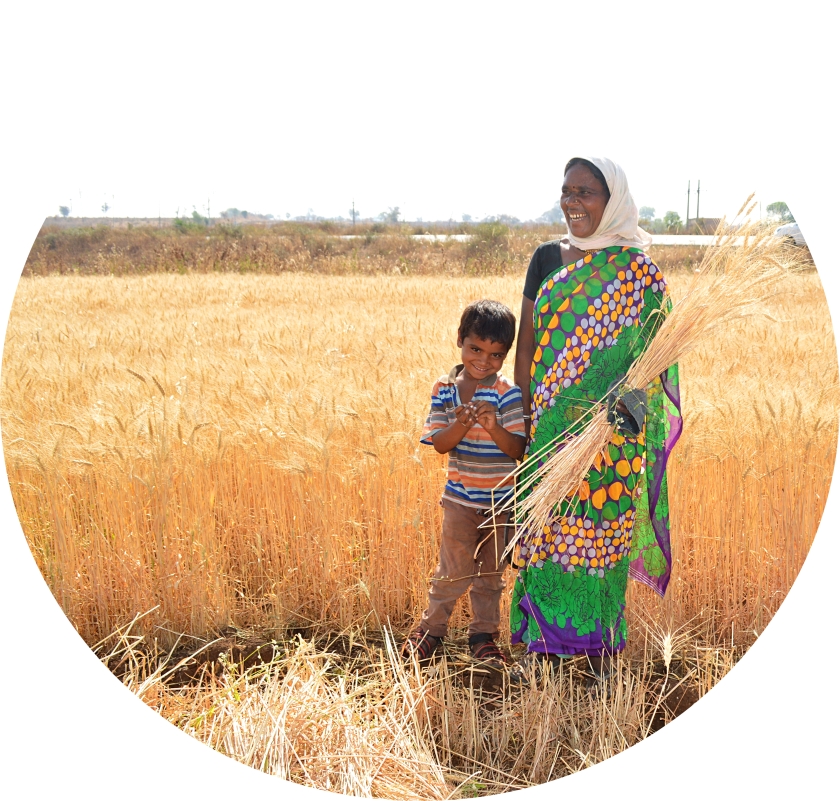“Kaka, ek pose dijiye na photo ke liye” (Uncle, please give me a good pose for the photograph)
“Suicide wala pose du kya?” (Should I give the suicide pose)
The humour is dark in Vidarbha. As the temperature soars to 48 degree Celsius, farmers joke about death, depression and the shadow of unpaid debts, which comes lurking with extreme weather changes leading to a possible crop loss.
Everytime, I visit our farmer groups in Vidarbha, I come back with unheard stories and turbulence in my mind. I spent last three days in Akola and it’s nearby villages, where Happy Roots along with farmers and Chetana Organics, has been working on a crop demonstration project. The heat was unbearable. The dark tanned faces of farmers with patches of red, told a story of their everyday battle with the sun and their undeterred spirit to fight for survival. This visit has raised my respect for Vidarbha farmers to a whole new level. Their view points on life, work and economics of their ecosystem made me write this blog post. Why? Because I feel that their voices need to be heard. I don’t know if my writings will bring any change in terms of how people think about food, farmers and bringing a social change but I feel that I should write, so that the voices do not get lost. I get the opportunity of traveling to rural hinterlands and get close to situations in our villages but many others don’t. What we hear or read in the media is noise about larger issues, the real simple truth comes out in meaningful heart-to-heart conversations.
Here are a few points that I brought back from the farms. These are questions, situations and points-to-ponder, all rolled into one.
- Power, water and sun – This year Akola district is observing temp. at 45C in March. I don’t know what May (supposed to be the hottest month of the year) beholds. There is always a water shortage in this area (we have a historic trend and fear of drought in Vidarbha and Marathwada). When I requested a glass of water at each farmer house we visited, I knew I was requesting a luxury never denied to a guest. On top of all this I came to know that there is a power shortage across villages. The families told us that the power is out most of the hours during the day and the night.
Imagine unbearable heat, water shortage and a home where there’s no electricity to get respite from the scorching heat outside. The families say that they have got used to this. They don’t fight with the situation anymore.

2. Disparity of incomes – When I need a break from work, I hang out with my friends at a good restaurant in town. Between four or five of us we share a food bill of 5,000 Rs and we do not fret about it, thinking that’s a price we pay for having a good time.
I met a well paid farmer family in a small village called Jamthi. They get a monthly pay of 5,000 Rs that helps them support a family of four. The average income per household across villages is 2,000-3,000 Rs. Their kids skip school for a few months when paying the fee becomes difficult. To earn this salary they spend min. 6-7 hours on the field, working through the peak sunny hours.

3. Surge pricing – I do fret about Uber’s surge pricing and the ridiculous fares airlines charge when the demand is high. But a lot of times I give in to the situation thinking that they are just making use of the “right” business opportunity to make money.
Vidarbha is a pulse (tur dal, chana dal) growing region and recently due to drop in prices of pulses in the market, they had to sell their produce for lower rates. The farmers protest that if the big companies and industries have a right to demand higher prices in case of higher demand, why does the same rule doesn’t apply to them? Every time the demand for a particular crop rises, either the industries lobby against them or the Government starts flooding markets with cheaper imports.
The market dynamics always work against the farmer.
4. Oblivious consumer – Our cotton farmers from Vidarbha recently tried their hand at making some good quality Khadi shirts from their Organic cotton. They took the lot to an exhibition in Mumbai. They were not able to pay for the expensive stall inside the exhibition hall so they spread a sheet outside the gate and started selling the shirts. Every consumer tried to negotiate the hell out of them for the same quality selling at double the price at the exhibition by some known brands. One consumer even argued that they are supposed to sell it at lower costs because they are selling on the streets.
The farmers finally put a sign behind –
“Those who earn a fixed monthly salary please do not negotiate with those who earn it once a year”

5. Moral obligation – When Chetana Organics (our NGO partner in Vidarbha) asked for some financial support (for our Barley crop demo project) from a local government organisation, they refused it. Reason, the crop is going to be used for making beer. The official said “Ab kya shetkari daaru banayega” (would the farmers now make alcohol!).
Barley is a hardy crop that uses lesser water for irrigation, survives drought and has a potential to fetch 50% higher income for farmers than wheat. In farmers own words “we are not supposed to earn profits, we are supposed to burn in heat and work hard, we are supposed to be morally right when we are not even the ones who will drink the beer”. The farmers didn’t get any funding for the project but thankfully we had an industry partner who believed in what we were doing.

Despite of all this the farmers in Vidarbha are hopeful, making the best of their situation and ready to take risks to experiment with new crops and projects that can possibly help them earn better sustainable incomes.
Our Barley project in Vidarbha has completed its first phase of production and harvest. Our industry partner Doolally will now test all the varieties that we produced for quality. If we do have a good grain in hand for malting, Vidarbha will see a new dawn of prosperity.

Great Job Reema!!!
Please let us know if we can also help in improving the quality of rural life…
Hi Sachin,
Thank you. You can always reach out to me at connect@happyroots.in and share ideas on how I can use support/help from more people for our work.
I am happy to see that you like author are visiting to farmers and helping them to survive by marketing their farm products.
I am a prayogshil shetkari from Washim dist of vidarbha region.
I have been doing organic farming last from three years based on deshi gaumata.
I have formed a group of Gir gaupalak at Washim.
If you can help to my group of farmers for marketing their ghrut or (tup in marathi) ,udid dal,mug dal, Halad powder ,it will help them to survive without burden of bank loans.
Regards
Ravi Madhav Marshetwar,Washim,vidarbha
9823748863
Hello Mr.Ravi, please feel free to reach me 9623385701 and I will be happy to know more about your farmer group.
This post really moved me, Reema. There’s so much we take for granted in our lives. I hope the barley project will be fruitful (beerful?).
You write beautifully!
Thank you so much Shivya! I am glad that you liked the piece. And thank you for the compliment. Means a lot to come from someone whom I admire for her writing!